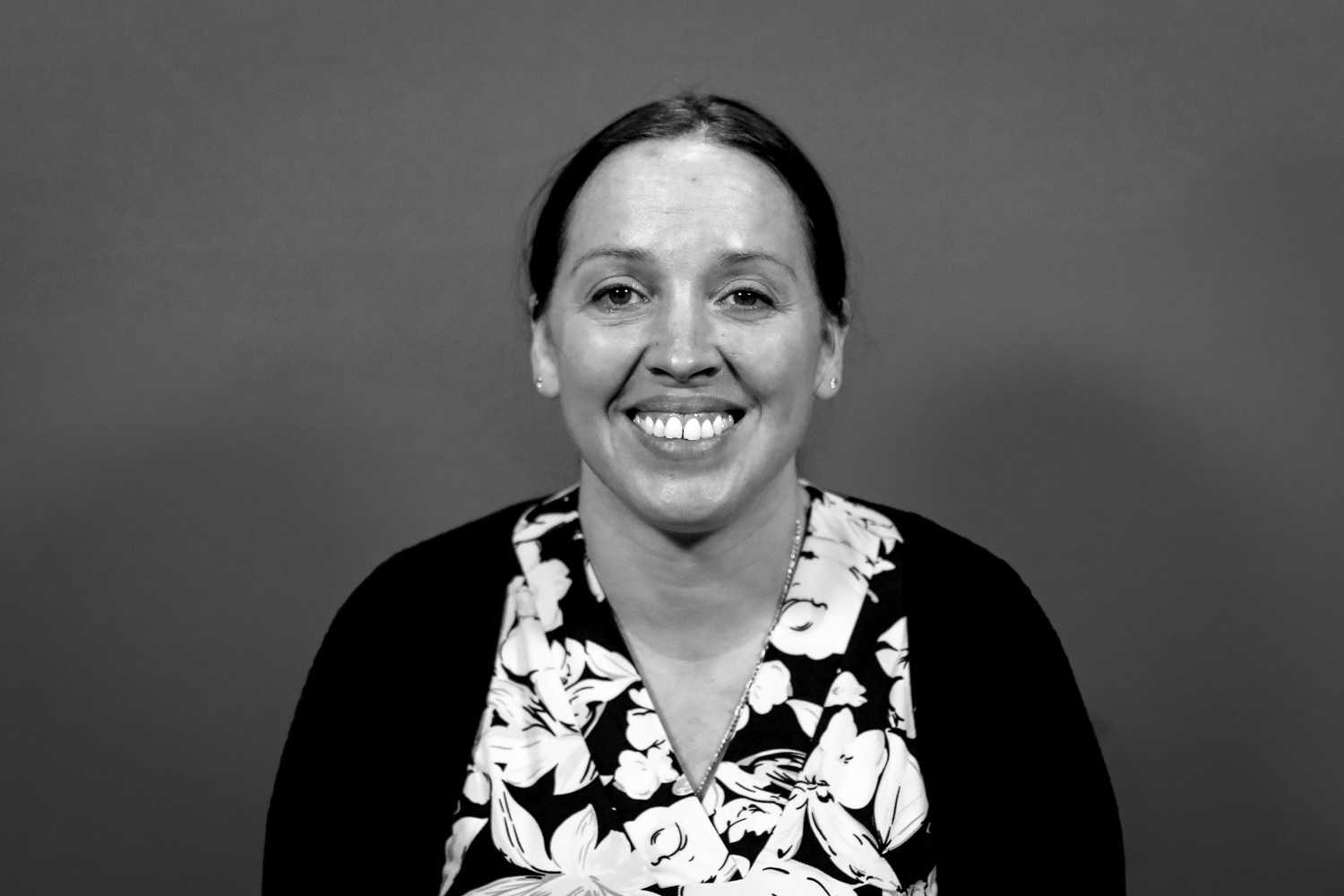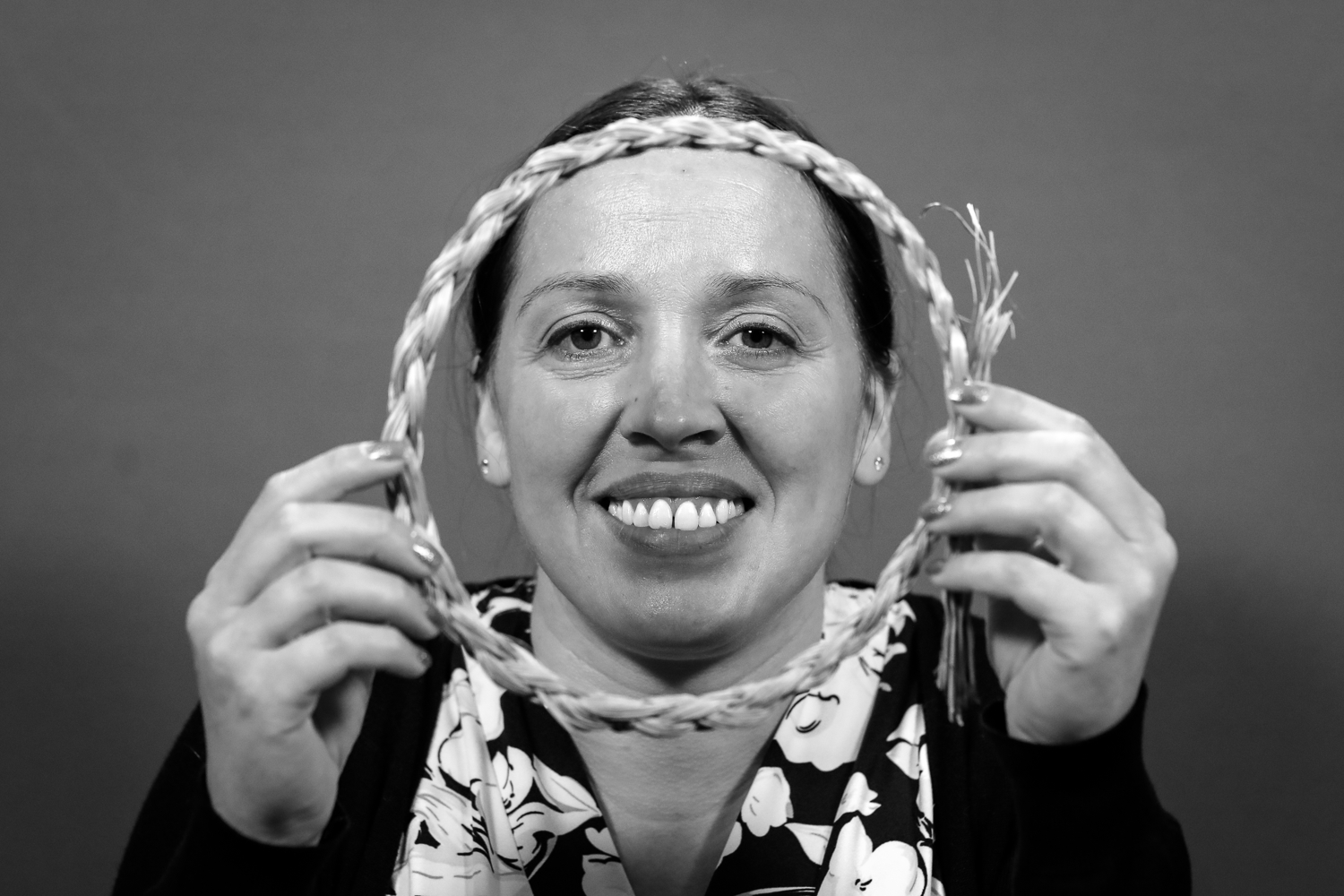
Jennefer Simo
Spirit name is Wai Be Benassi Bemosh Sit Que, White Woman with the Soaring White Eagle
Coordinator, Security Services
I’ve always taken care of people, even as a kid. My foster mother had diabetes. She was elderly, visually impaired and had a disability. I started caring for her one day and that’s how my journey started.
I was working in private health care, taking care of someone with a physical disability when an Indigenous community member reached out to me. She had heard about a job in the emergency department at a hospital and wanted me to apply. The hospital was looking for someone Indigenous to advance their work towards equity, diversity and inclusion. I interviewed and got the job.
My tribe is Ojibway. We come from hunters and trappers and are considered peacekeepers. My family name is well known. My great grandfather was the medicine man of the tribe and he lived a very spiritual life – a life with the land and close to Mother Creator. We all have a close connection to spirit. Being Ojibway has taught me to be respectful and mindful. To appreciate people for who they are and where they’re at. I value life and understand that behind every person is a journey.
When I started working at St. Michael’s, the hospital had a bad rap in the Indigenous community for hateful healing. One of my focuses was to repair relationships and establish new pathways to better support Indigenous patients. I’d greet everyone who entered the emergency department, Indigenous or not, and ask if there was anything I could do to help. I’d let them know that I was Indigenous, in case they were too. I’d tell them where my family was from. I think I helped to repair a lot of relationships that way.
I come from a broken home. My siblings and I were taken from our mother and put into foster care. The system taught us that our Indigenous heritage was something to be ashamed of. We were told that our mother was inadequate and that’s why we were removed. I didn’t see some of my family members for years. When we came back together, it was like getting to know each other all over again.
As a teenager, there was a turning point when I started to feel more protective of my mother. I better understood what she had gone through and the oppression she experienced. Being part of the sixties scoop and as an Indigenous woman, her life was so hard. But she was a pioneer. She spoke up about her experiences and marched in protests. She signed petitions and brought us to Indigenous ceremonies. I stopped feeling ashamed of my Indigenous heritage and started to feel angry and vocal.

My mother died when I was 18 and the way that her death was handled was one of the greatest traumas of my life. She had been brought to St. Michael’s after a car accident, where they bandaged her head and tied her to the bed. When we arrived, we could see that her spirit was standing beside her bed and knew that she had already passed. I never felt that the doctors cared enough. I think that they saw her as a native woman with a substance problem. When we asked to bring in a spiritual healer to perform our cultural traditions at the time of someone’s death, the hospital said no.
Years later, working at St. Michael’s, an Indigenous patient who I had worked closely with for several years passed away. He had no family that we knew of in Toronto and he was of no-fixed address. So, we found a spiritual healer to come perform his right of passage. This was a huge trigger for me. He was in the same ward, in the same bed that my mother had passed in. The flood gates opened. It was really nice knowing that I supported a patient in the same way that I had wanted my mother to be supported.
A few years ago, the COVID-19 pandemic started and it became extremely stressful. Being at work wasn’t just terrifying, it was overwhelming and mentally exhausting. It felt like we were the only ones working. One day, a colleague came to me and said Jenny, we could really use a smudge. I connected with leadership and everyone was so supportive. For eight months, every other week, we held staff smudging. It was intended to boost staff morale and it quickly caught fire. A lot of staff came out, both Indigenous and not, and it turned into a really beautiful experience. I think it helped a lot of people.
After the second year of the pandemic, I decided to step back. I’d been working at St. Michael’s, while also supporting the City of Toronto in the development of a new crisis intervention program in response to COVID-19. I needed a mental break. I did some work with the Mental Health and Addictions Advisory Panel at the Toronto Police Service, which was a great experience, but everything during the pandemic became frustrating, as most programs closed down.
A year ago, a colleague came to me and suggested I apply for a job in the Security Services Department. They knew I’d been seeking other work. I applied and got the job. It’s been a huge learning curve but it’s also been really exciting. I’m thankful for the opportunity and grateful that I didn’t have to leave the organization. I’ve enjoyed my time at Unity Health. The people are wonderful.
I’m pleased with the progress that Unity Health is making to repair relationships with the Indigenous community.
I’m not saying that the initiative and motives weren’t there before but we’ve created new roles and commitments to hold people accountable. We didn’t have that before.
There’s also more development in the area of Indigenous representation. A few years ago, I was invited to join the First Nations, Inuit and Métis Community Advisory Panel at Unity Health, which I happily accepted. As co-Chair, I’m proud of the work that’s happening, the relationships being repaired and the pathways being created. I think we’re moving in the right direction and it’s really nice to see.
Jennefer Simo is a Coordinator for the Security Services Department at St. Michael’s Hospital. Previously, she was a Community Support Worker in the Emergency Department at St. Michael’s.
As told to Anna Wassermann. Photos by Eduardo Lima. This interview has been edited and condensed.

